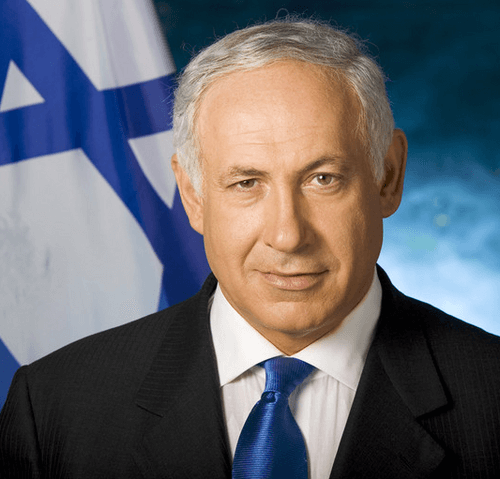
CIVIL AFFAIRS
In 1979, religious fundamentalists overthrew the government in Iran. Built-up by the repressive conditions of the despotic Shah, who despite his autocracy was fiercely secular and even admiring toward the west, religious groups loyal to Ayatollah Khomeini, an Islamic cleric, engaged in an armed struggle to win control of the country.
Iran, which to that point had been a model of secularist values in the Middle East, quickly turned its back on the progress. Bolstered by popular support, Khomeini took supreme control of the country, and began a brutal crackdown on all dissenters and minorities. Equality between the sexes, once a goal in Iran, became a distant dream as misogynists only reinforced patriarchal conditions in the country. Iran, as well as countries with similar stories such as Afghanistan, only took a step backward since being taken over by religious zealots. They have turned their back on the 21st century, and all the values that go along with it.
Today, Israel stands on the precipice of its own “silent Iranian revolution.” However, the reactionary and misogynistic brigades of today will rely upon votes, not violence, and ballots, not bombs, to achieve their goals.
Israeli Prime Minister Benjamin Netanyahu’s governing coalition, comprised with some centrist elements, has collapsed, new elections will take place in 10 days time. Opinion polls prognosticate that Netanyahu will likely be returned as prime minister in the parliamentary elections, which feature a plethora of parties as a result of the nationwide proportional representation system. However, more significant than Netanyahu’s likely re-election is that his most extreme allies, namely the far-right religious parties such as The Jewish Home, look destined to retain their strong presence in the Knesset at the expense of those aforementioned centrist parties.
Originally, one of Israel’s key advantages compared to its backwards neighbors was its dedication to secular values. Even though, as early as the state’s declaration of independence, there were references to the state’s dedication to being a home for the Jewish people, this sentiment echoed the people and not the religion. Many of the state’s founding fathers, including David Ben-Gurion, Golda Meir and Yitzchak Rabin, were avowed atheists.
Unfortunately, as time went on, the population has become far more religious, heavily comprised of individuals with little appreciation for democratic values. Dedication to free speech/expression, minority rights and equality of the sexes has particularly been ignored by these backwards, reactionary and extreme parties.
Under Netanyahu’s stewardship, the government enacted an anti-democratic law, ostensibly designed to protect against well-organized boycotts against the state. The law allows for private individuals to launch litigious, frivolous and punitive suits against those advocating for such boycotts, chilling the free speech rights of those advocating for dissenting opinions in Israeli society. This illiberal, authoritarian law was heralded by the aforementioned religious and far-right parties.
They have similarly done their best to alienate the Arab minority within Israel. Long heralded for its colorblind and ethnicity-blind laws that extended equal protections and democratic rights to all citizens, Jewish, Arab or something else entirely, these protections have been all but eviscerated in recent years. In 2010, Foreign Minister Avigdor Lieberman and his racist ilk attempted to push through a so-called loyalty oath that would have required citizens, of all ethnicities and religions, to pledge fealty toward the “Jewish state.” The heinous proposal, which sought to humiliate religious and ethnic minorities, was derided by newspapers and even cabinet ministers as simply fascist in nature.
Perhaps most perniciously, ultra-religious groups have begun expanding segregation based on gender in public spaces. Be it cemeteries, sidewalks or even buses, women are often compelled to occupy second-class conditions as a way of fulfilling misogyny and sexism masquerading as religious values. Former Justice Minister Tzipi Livni, one of the centrist politicians recently sacked by Netanyahu and a key rival to him in this month’s election, attempted to criminalize these abhorrent practices but received immense pushback from religious societies.
The ultra-religious have exponentially grown in population and influence in Israel as a result of the indefensibly generous deal they get from government welfare. These individuals simply get a check from the government, subsidizing their unemployment, and spend all days at Synagogues or Yeshivas, contributing absolutely nothing to society. Most Israelis agree they are a drain on the economy, but political realities suggest they are also a drain on the morality and progress of the state. Like the fundamentalists who propped up Khomeini in Iran, their vision for the future is theocratic and deleterious.
In the next Israeli parliamentary election, the hard and religious right looks likely to continue their stranglehold in power and continue to implement their harmful, reactionary and fascist agenda upon the state. For all those curious to see how theocracy can work out for a Middle Eastern country, one need not look any further than Iran. For the sake of Israel, which despite all these criticisms is still at heart a liberal democracy (albeit with many, many flaws), it should seek a different path. Their silent Iranian Revolution may not be silent much longer.























